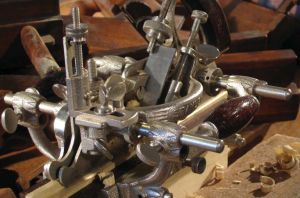We may receive a commission when you use our affiliate links. However, this does not impact our recommendations.
In the course of any project build, unless you have decades of experience, you will probably hit the internet several times in search of just the right woodworking tips for particular problems. You will discover several fairly random suggestions, in various web locations, for each of those several steps. By the end of the project, you may have dozens of woodworking tips floating around in your head, not all of which are useful.
It’s good if you can eliminate as much of that mental clutter as possible throughout your woodworking journey. One of the best ways to do that is with a one-year subscription to Popular Woodworking Magazine. Our expert staff does most of the clutter-cutting for you. Take one year of magazine reading mixed with some web searching, versus a year of only web searching. I think you’ll emerge with a better foundation for your work by choosing the subscription (click here).
Here’s an example from just one month. I compiled 5 “not-so-random” woodworking tips from the latest magazine issue. Enjoy!
Page 15. You can use a thickness planer as a type of jointer, with nothing more than some hot-melt glue and waxed paper. Lines of melted glue act as a temporary filler under the bowed section of your board, with the waxed paper as a base to make it glide through the planer. (Randy Wolfe, one of our readers, provided this tip.)
Page 22. Do you know where to find detailed pictures and information on a huge amount of America’s architectural history? Design contributor George Walker points us to the online repository of the Historic Architectural Buildings Survey.
Page 32. Why hammer veneering works. Don Williams tells the reader not only how to perform his favorite veneering process, but also the chemistry behind why it works. I always find it easier to remember something when I know the “why.” In this case, it has to do with the way this process efficiently reduces the temperature of hot hide glue to its gel point.
Page 35. What a Stanley combination plane is. A picture is worth a thousand words, and apparently these planes were once touted to be worth a thousand other planes. I never knew what a combination plane looked like until Roy Underhill’s article arrived in front of my eyes. Interesting!
Page 58. Simple tips for categorizing hardwoods and making decisions about wood for projects. Bob Rozaieski advises that you take workability into account, especially when using hand tools on projects. It is only since power tools became the norm that woodworkers have widely utilized dry hardwoods like oak and maple for their work. Better choices, from a workability standpoint, include cherry, mahogany, walnut, poplar and pine.
–Dan Farnbach
Here are some supplies and tools we find essential in our everyday work around the shop. We may receive a commission from sales referred by our links; however, we have carefully selected these products for their usefulness and quality.








